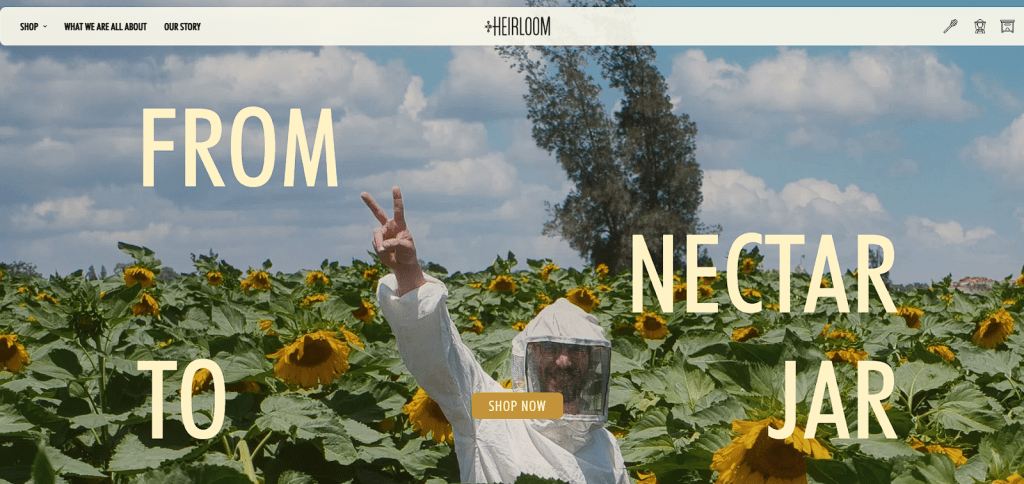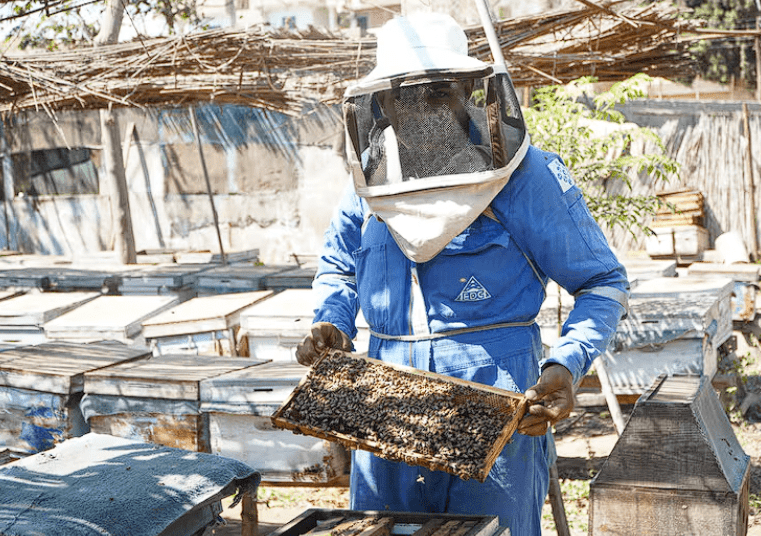By Omar Gouda
In a workshop in the heart of Cairo, the team behind Heirloom Honey Egypt fills jars with golden honey from their own hives and trusted local keepers. Each label tells a story of heritage, community, and care, inviting city shoppers to rediscover one of Egypt’s oldest rural traditions.
This honey journey stretches from rooftops to farmland. While boutique brands like Heirloom are thriving in urban markets, rural beekeepers are grappling with rising costs and climate challenges that put centuries of practice at risk.

Why It Matters
Beekeeping in Egypt is far more than a weekend hobby. It supports tens of thousands of households, keeps crops pollinated, and fuels a growing market for products like beeswax creams and artisanal honey. With around 2.5 million hives producing 30,000 tonnes of honey each year, the sector plays a vital role in rural economies.
But rising costs and tighter margins are making it harder for traditional keepers to stay afloat. That’s where urban beekeeping steps in, offering a fresh take and new opportunities in the heart of the city.
Rural Bee-Hives Under Pressure
In villages like Hessa Shabshir in Gharbia, beekeeping was passed down through generations. Parents expected their children to take over the family hives, but today many are choosing different paths. Hive numbers are falling, young people are moving away, and one local producer warns that the craft is at risk of disappearing altogether.

Giving Rise to the Urban Side
That pressure is one reason urban beekeeping in Cairo has grown into something more than a weekend pastime and small businesses are stepping. Upmakers like Urban Bees Studio, who craft and sell beeswax candles, natural skincare, and limited batches of honey, are tapping into a rising demand for local, traceable products with a handmade touch.

Via UBS
The Upside
Urban beehives do more than produce honey. They bring pollination into plain sight, help local biodiversity thrive in parks and gardens, and create spaces for learning and community engagement through environmental groups and university programs.
At the same time, economists and market analysts are eyeing the business side. The apiculture market across the Middle East and Africa is worth hundreds of millions of dollars, with strong potential in niche areas like beeswax-based cosmetics and emerging experiences like bee-focused tourism.
The Future Outlook
Still, the road isn’t smooth. Shifting weather patterns, pests, and gaps in quality control make honey yields unpredictable. Many rural beekeepers say rising costs and shaky export routes are cutting into their profits.



